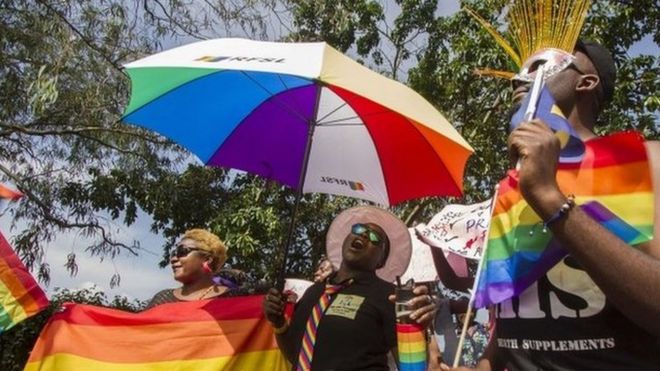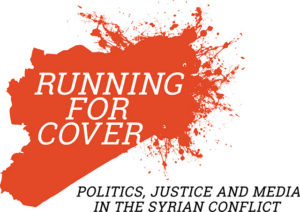By Samantha Netzband
Impunity Watch, Africa Desk Reporter
KAMPALA, Uganda– Police stopped gay pride marches just outside the capital of Kampala on Saturday September 24th. This was after a statement on the 22nd from Simon Lokodo, minister of Uganda’s ethics and integrity cabinet, who told organizers they would be prosecuted if they marched.
Activists marching in August 2015. (Photo Courtesy of BBC)
Gay rights activist Frank Mugisha said more than 100 LGBTQ participants tried to participate in the activism activities. Before activists could march, they were herded onto buses by police and bused back to Kampala. Homosexuality is currently illegal in Uganda and Lokodo is known for his harsh anti-LGBTQ stance. In the past, the march has been allowed to proceed without government intervention.
The crackdown on the gay pride march comes after a lawmaker tried to push through a harsher law on homosexuality. The law would have allowed a sentence of death as punishment for homosexual acts. This law was eventually determined to be unconstitutional by the courts in Uganda.
Despite the triumph in the courts the climate in Uganda has been similar to the blockade of the gay pride march. A few months ago Lokodo authorized a violent raid at a pride celebration. LGBTQ citizens are also continually outed, threatened, and killed for their sexual orientation.
For more information, please see:
BBC – Ugandan police block gay pride parade – 24 September 2016
Citizen TV – Ugandan police stop gay pride parade – 24 September 2016
Fox News – Uganda: Police stop gay pride parade deemed illegal – 24 September 2016
Out – Uganda Official Orders Pride March Organizers to Cancel Parade – 22 September 2016







